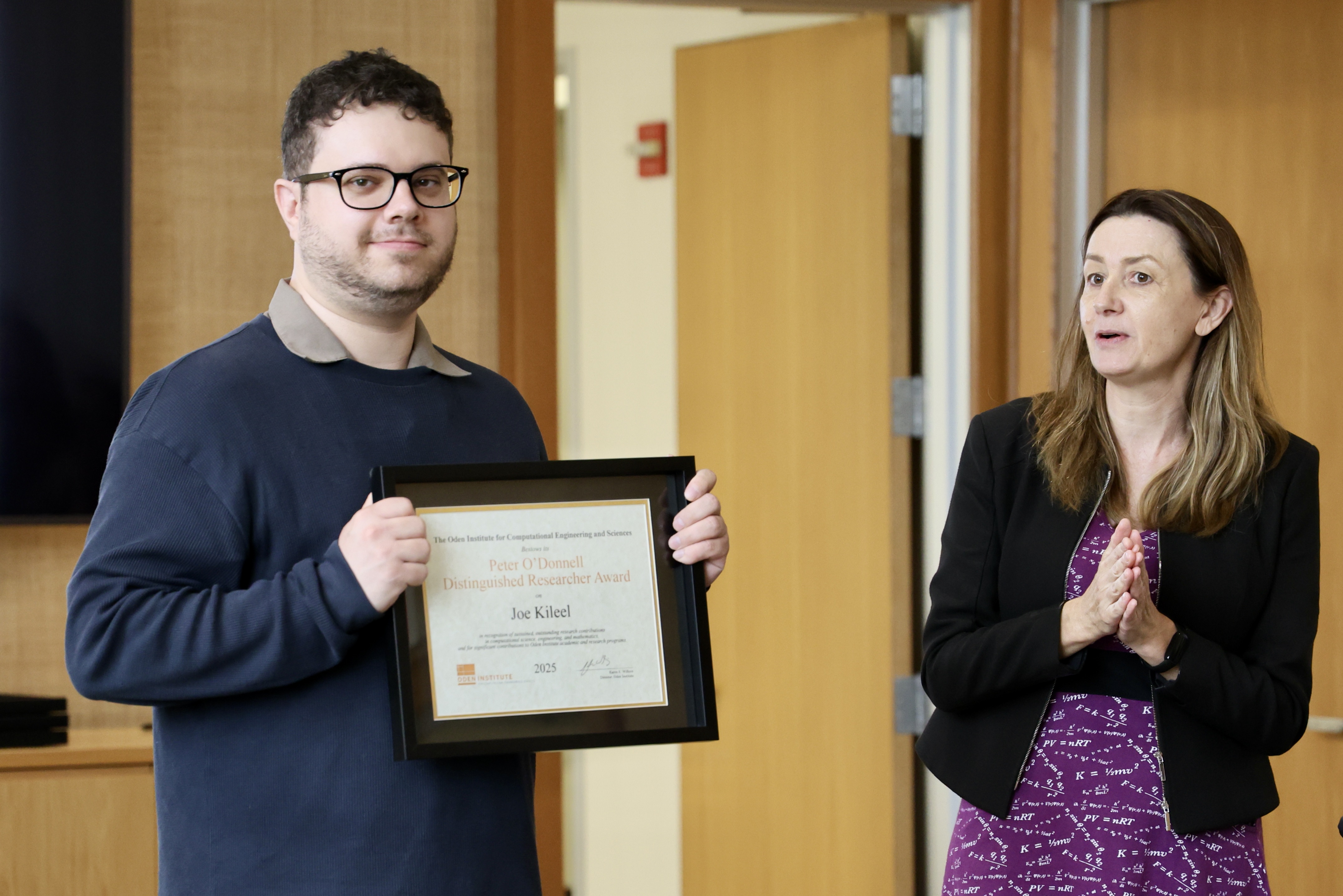Joe Kileel is the 2025 recipient of the Peter O’Donnell, Jr., Distinguished Research Award, acknowledging Kileel’s “outstanding research records and impressive and sustained contributions to the Oden Institute, and for the distinction his work and reputation brings to the Oden Institute and The University of Texas at Austin.”
An assistant professor of mathematics and Principal Faculty at the Oden Institute for Computational Engineering and Sciences, Kileel’s research focuses on developing computational models that exploit the underlying algebraic and geometric structure of given problems.
“This award is an indicator that others are finding interest in my research. When I got the email notification, it was not something on my radar. It was a very pleasant surprise,” said Kileel. The award provides $100,000 in funds over a four-year period used at the researcher’s discretion to support research at the Oden Institute.
Kileel, who is a member of the Center for Scientific Machine Learning at the Oden Institute, said the funds will provide support for his research group’s activities within the applied math and scientific machine learning groups and may be used to fund student travel and/or provide summer support.
